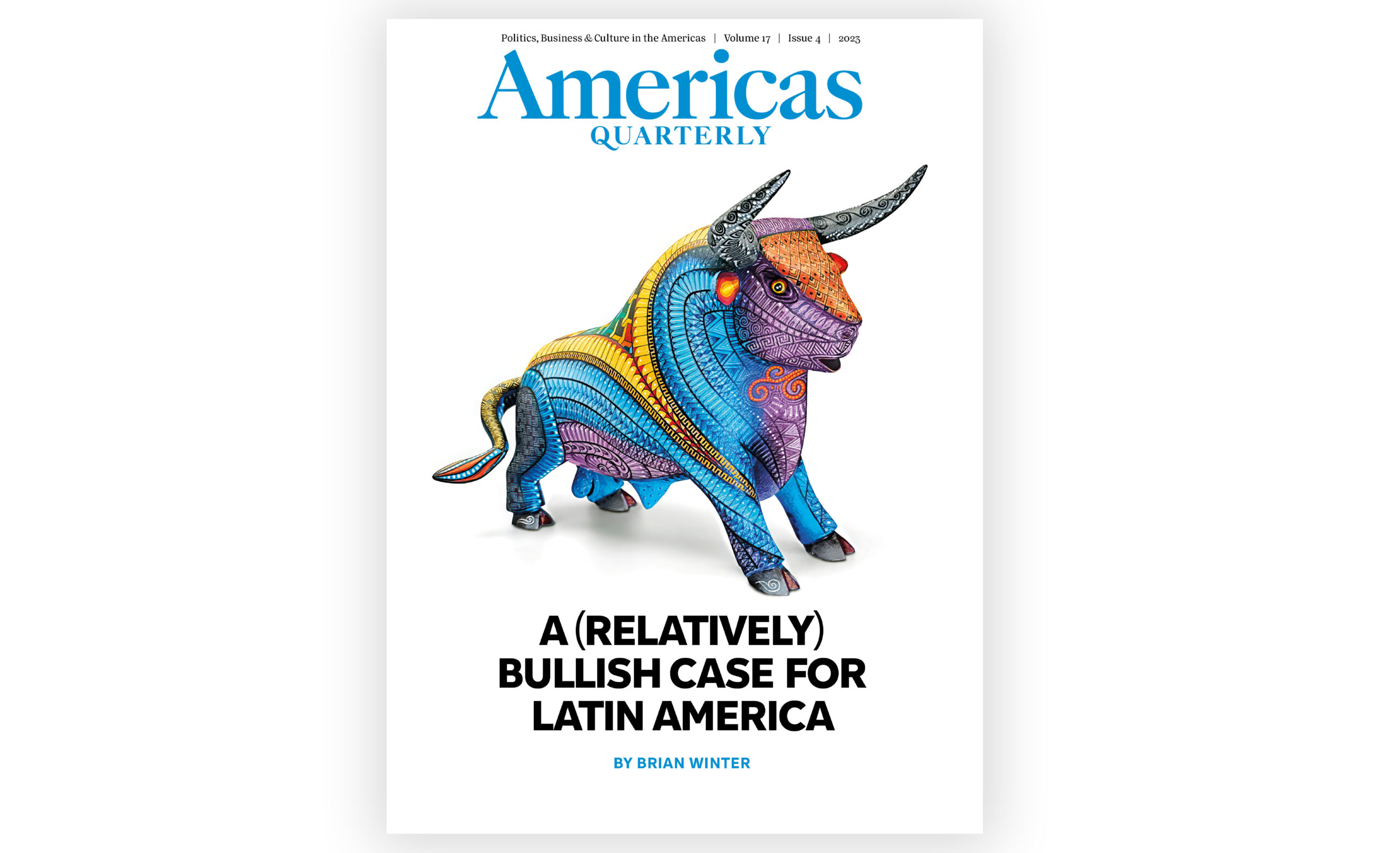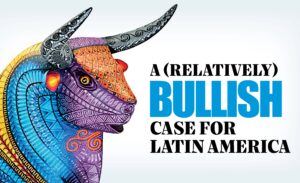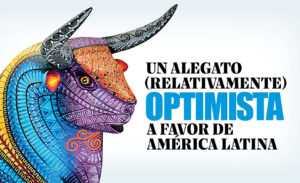This article is adapted from AQ’s special report on A (Relatively) Bullish Case for Latin America
It always feels risky to express optimism about Latin America and the Caribbean. A “lost decade” of stagnant economies, dysfunctional politics and profound challenges like organized crime and low productivity mean that “LatAm bears” make the loudest, most convincing arguments—and have often been proven right in recent years.
But if you look carefully, the region is clearly benefiting from tectonic shifts underway in the world right now. The Ukraine war, mounting U.S.-China tensions, climate change and a broad reorganization of supply chains in the wake of the pandemic mean that countries and companies everywhere need dependable sources of food, energy and workers close to the United States. These needs are so great, in fact, that they may be enough to overcome the region’s undeniable headwinds.
Skepticism abounds, and with good reason. No one is predicting a return to the glory days of the 2000s commodities boom. But even a small uptick in growth would be meaningful, and there are signs that’s happening: Foreign direct investment (FDI) in Latin America and the Caribbean soared 55% in 2022 to its highest value on record, during a year when FDI flows globally were shrinking. So far this year, FDI to Mexico is up another 40%, led by the “nearshoring” trend that studies suggest could also benefit countries as far south as Argentina.
There are other reasons to be relatively bullish, our editor-in-chief Brian Winter writes in this issue’s cover story (illustrated, fittingly enough, with a Mexican alebrije sculpture of a bull). The region’s generally neutral posture on the China-U.S. competition has, at least for now, made it a safe place for both countries to do business. Latin America’s digital economy offers growth in e-commerce and fintech. Commodities like green hydrogen, lithium and rare earths, along with old-fashioned oil and natural gas, also bring opportunities.
The bottom line: Not everything in Latin America and the Caribbean is about politics—at times like these, the global context arguably matters more. That’s an odd argument for a politics-focused magazine like ours to make, but it may prove to be the mantra of a new, relatively bullish era.









